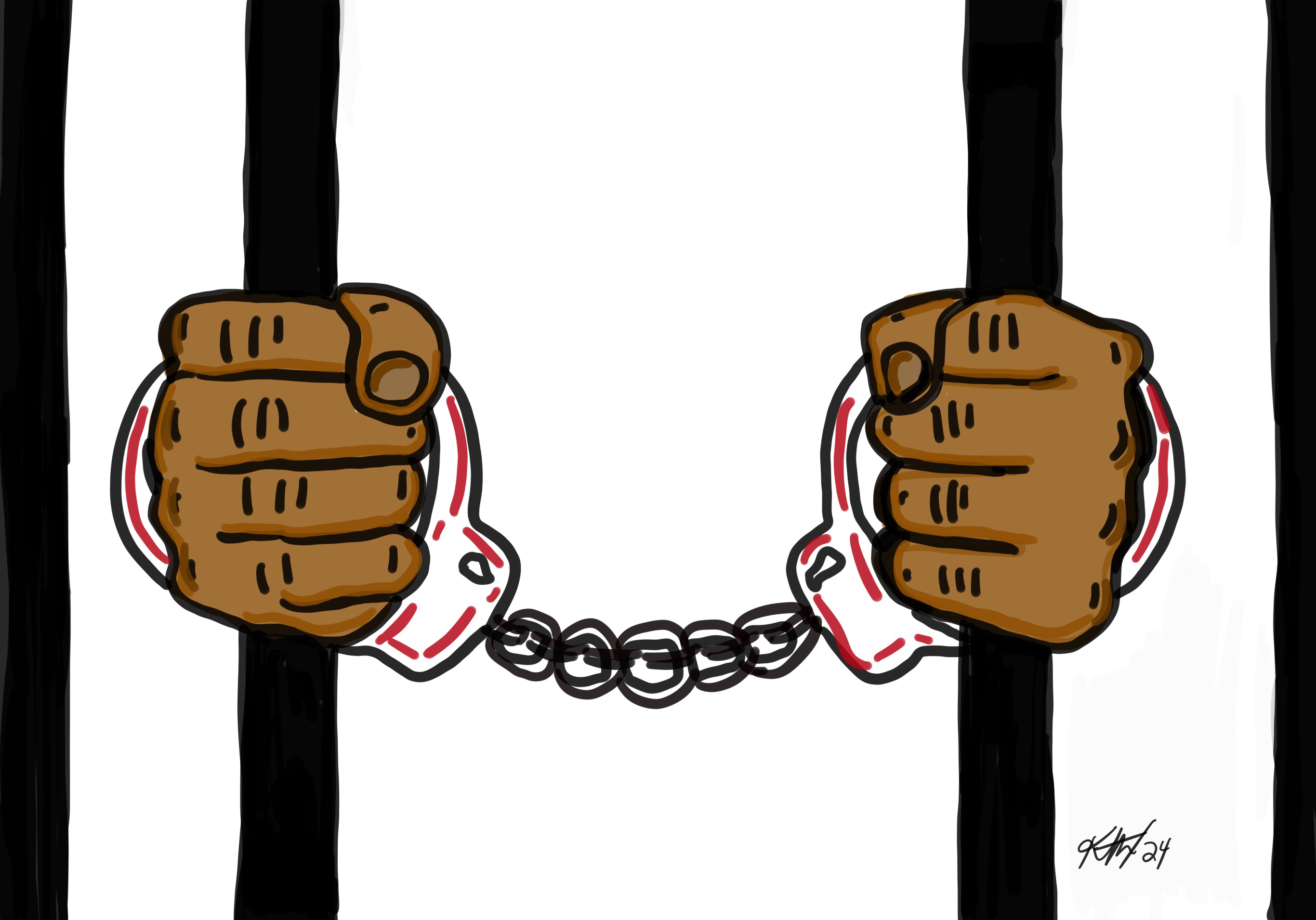Tamil Guardian editorial, London, March 24, 2024
Illustration by Keera Ratnam / @wavesofcolour
After more than a week of detention, a group of eight Tamils who had been assaulted, arrested and detained without bail finally had a trumped-up case against them dismissed. The Sri Lankan police never did have any basis to hold them, a fact that even the biased court system could not dispute. But this will not deter Sri Lanka’s security forces from doing the same again. Aside from the blatant racism, there is little legal basis behind the continued detainment or interrogation of Tamils. The logic driving it, however, is not to enforce the law. Instead, it is to threaten, intimidate, and quash any flicker of Tamil resistance.
Though the case against the eight devotees of the Vedukkunaari temple was dismissed, this is not a victory for Sri Lanka’s judicial system. The courts themselves have long been complicit in the state’s repression. The dismissal demonstrates how flimsy the charges were to begin with, yet, as has often been the case, the court refused to grant bail. Throughout the island’s post-independence history the legal system has worked hand in hand with the security forces in detaining Tamil prisoners, prosecuting journalists, and meting out court orders that halt demonstrations and memorials to the dead. When judges have ruled against the state, such as when Mullaitivu District Judge T. Saravanarajah did in the Kurunthurmalai case against the government’s archaeology department, he was forced to resign and flee the island after facing death threats, inflamed by government ministers. Alongside the other branches of government, the judiciary too is steeped in racism and has been instrumental in repressing Eelam Tamils. The latest ruling does not change that.
The arrests at Vedukkunaari come as Tamil journalists continue to be interrogated, human rights activists face repeated intimidation, and instances of Sri Lankan police torture and murder continue. A climate of fear and impunity remains across the North-East. Almost 15 years since the end of the armed conflict, Tamils are still being persecuted.
The rationale behind the ongoing harassment and detention by the security forces is not necessarily to ensure that Tamils are given jail sentences. Instead, it is squarely aimed at preventing Tamil resistance from growing. The goal is to instil a fear that the very prospect of defying the Sri Lankan state, whether to protest or to pray, will provoke an overwhelming and violent backlash. This is precisely why Tamil mothers searching for their children and elected lawmakers are manhandled by troops and police officers. It is why torture and human rights abuses take place to this very day. It is why the military maintains tens of thousands of troops across the North-East and continues to occupy vast swathes of land. And it is why even if these eight Tamils are freed, the arrests will continue. Any flicker of defiance faces brutal repression.
What Sri Lanka fails to understand is that this strategy will not work. Almost 15 years since the genocide that killed of tens of thousands and wiped out the armed movement, Tamil demands for liberation, equality and self-determination have not halted. Indeed, those calls have only grown stronger year on year, with Tamil nationalist positions being embraced across the North-East. The massacres at Mullivaikkal could not erase them, and neither will the state’s continued repression.
This protracted oppression and resistance has become a well-established fact of the island’s political reality. The state will continue its violent pursuit of Sinhala Buddhist order across the Tamil homeland. Eelam Tamils will not submit. Those in the international community who are genuinely committed to securing lasting stability must recognise this. It is only by pushing back on Colombo and by heeding Tamil demands that a true peace will follow. Without it, Sri Lanka’s repression will continue. And so too will Tamil resistance.
